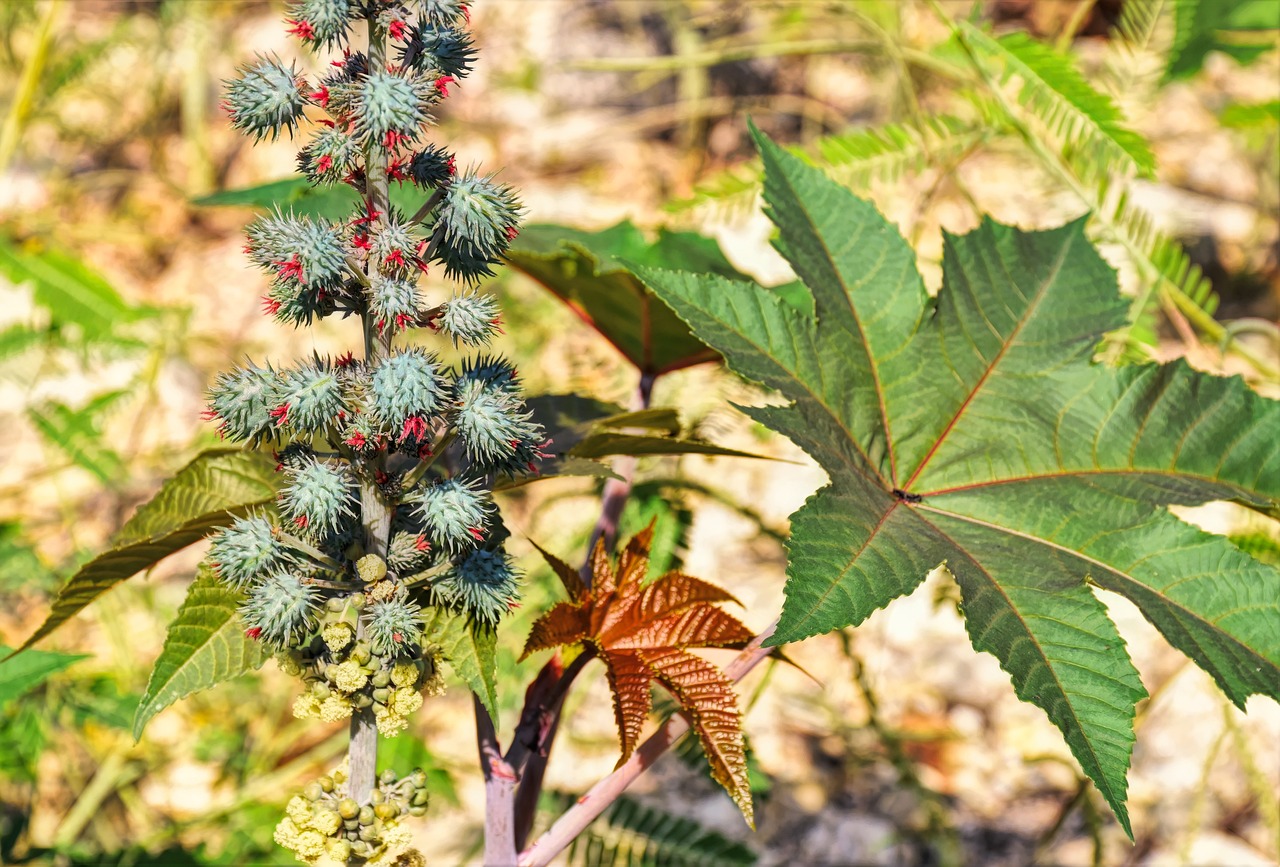Castor seeds, known scientifically as Ricinus communis, are a remarkable botanical wonder with a rich history and myriad uses across various cultures. Native to Africa and India, this plant has found its way into numerous facets of human life, from industry to traditional medicine. Let’s delve deeper into the world of castor seeds, exploring their names, plant characteristics, benefits, and diverse applications.
Names and Cultural Significance
Castor seeds go by several names in India, reflecting its widespread cultivation and importance:
- Hindi: Arandi or Erandi
- Tamil: Aamanakku
- Telugu: Aamudamu
- Kannada: Haralu
- Malayalam: Avanakku
- Bengali: Rendi
These names not only signify regional variations but also highlight the plant’s integral role in traditional practices and local economies.
The Castor Plant: Nature’s Bounty
The castor plant is a large shrub-like perennial that can reach heights of up to 12 meters. It thrives in tropical and subtropical climates, known for its robustness and ability to grow in diverse soil conditions. The plant is characterized by large, palmate leaves and spiky fruits that contain the seeds. These seeds are the primary source of castor oil, which is extracted through a pressing process.
Benefits of Castor Seeds
- Medicinal Uses: Castor oil has been used for centuries in traditional medicine for its anti-inflammatory, antibacterial, and moisturizing properties. It is commonly used to treat skin conditions, promote hair growth, and as a laxative.
- Industrial Applications: Castor oil finds extensive use in industries such as cosmetics, pharmaceuticals, and manufacturing. It serves as a base for soaps, lubricants, paints, and varnishes due to its viscosity and chemical properties.
- Biofuel Production: The seeds are a source of biodiesel, offering a sustainable alternative to conventional fuels. The oil extracted from castor seeds has a high viscosity index and favorable combustion characteristics, making it suitable for biofuel production.
Cultural and Historical Significance
In India, castor seeds have a deep cultural significance beyond their practical uses. They are often associated with auspicious rituals and ceremonies, symbolizing fertility, prosperity, and purification. The plant itself has been integrated into traditional agriculture practices, where every part, from leaves to roots, has its own set of uses.
Sustainable Agriculture and Future Prospects
Castor plants are relatively low-maintenance and contribute positively to sustainable agricultural practices. They require minimal water and are resilient to pests, making them suitable for cultivation in arid regions. Moreover, the potential for castor oil as a biofuel source aligns with global efforts towards renewable energy and reducing carbon footprints.
Conclusion
Castor seeds exemplify the intricate relationship between nature, culture, and industry. From ancient times to modern applications, their versatility continues to be unrivaled. As we embrace sustainable practices and explore new technological advancements, the humble castor seed remains a steadfast companion, offering its bounty to enrich our lives and our planet.
Next time you encounter castor oil or its derivatives, remember the journey of the seeds from the vibrant plant to the myriad products that benefit us daily. The story of castor seeds is not just about agriculture or economics but also about resilience, innovation, and the timeless connection between humanity and nature.














